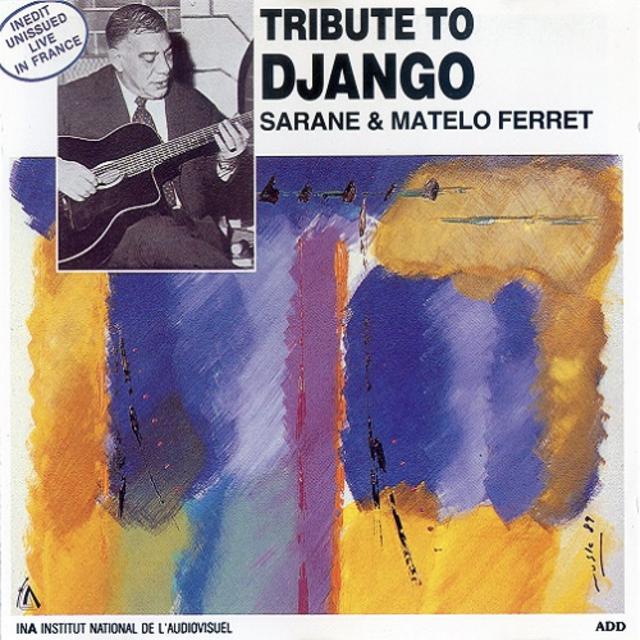
Artist: Sarane & Matelo Ferret
Album: Tribute to Django
Genre: Gypsy Jazz
Label: France's Concert
Released: 1973/1989
Quality: FLAC (tracks)
Tracklist:
- Swing 42 (Reinhardt) 03:00
- Confessin' (Daugherty, Reynolds) 03:56
- Blues In The Closet (Pettiford) 03:26
- Les Yeux Noirs (trad.) 04:08
- Au Temps de la Cour (Sonate en ut de Mozart) (Mozart) 02:59
- Out Of Nowhere (Green, Heyman) 04:14
- The Man I Love (Gershwin, Gershwin) 06:34
- Rhythm Futur (Reinhardt) 03:42
- What Is This Thing Called Love (Porter) 04:01
- Valse Manouche Inédite [Choti] (Reinhardt) 02:21
- Hungaria (Reinhardt) 03:03
DOWNLOAD FROM FILECAT.NET >>>
For many amateurs, the statue of Django Reinhardt symbolises the so-called gipsy jazz, although the brilliant guitarist originates from the Manouche community (the difference between the gipsy and the manouche community being their spoken language). Boulou Ferret, son of Matelo, confides to Jazz Hot magazine (n°312, January 1975) : "Gipsies and manouches are of the same blood and have more or less the same outlook on life and yet manouche people reproach gipsies for not being like them." Christian Escoudé, also gipsy, adds : "There are no similarities between the two nations in Paris where they are both very present."
What draws both communities together is music and for some musicians, it's jazz music, the fruit of many European tradition crossings, with the essential caracteristics of jazz (improvisation, ornamentation, rhythmic refinement) ...
With gipsy origins the Ferret family, Baro (1908-1976), Sarane (1912-1970) and Matelo (born in 1918) became involved in jazz after meeting Django, who had been working with popular dance orchestras. The three brothers soon showed musical differences. While Baro specializes more in the "Waltz Swing" with Gus Viseur (an incomparable accordionist), Sarane, Django's ex-accompanist, manager of the Paris Quintet (same style as the Hot-Club of France) records with Gus Viseur too, appearing in clubs such as "La Roulotte", "Les Trois Maillets" and "La Montagne Pelée" where the young violonist Jean-Luc Ponty, unknown then, came to play.
Matelo started to play since 1935 by the sides of the greatest French and Americans musicians (including violonists Michel Warlop and Eddie South). He accompanied the singers Jean Tranchant and Charles Trenet, as well as Edith Piaf during her first recordings, he then produced a sextet before taking part in the development of the "Musette swing" and popularizing the gipsy waltz. He recorded many albums, particularly with Gus Viseur, Tony Murena and Jo Privat.
We find in these concerts their different styles, Sarane looking for simplicity, while Matelo plays more in virtuosity with appealing harmonic and rhythmic combinations. The repertoire presents the works of Django, also including compositions gipsy guitarists can express with exceptional talent.
Jacques Chesnel

